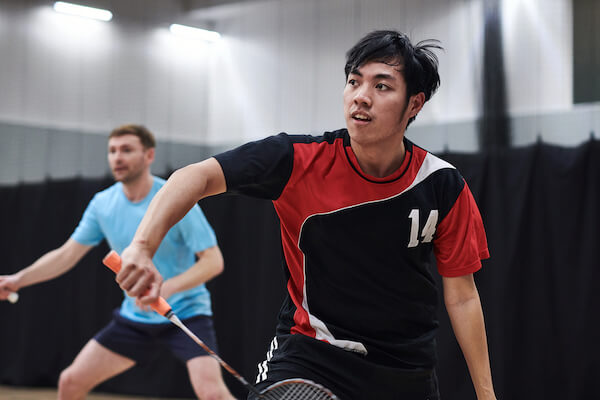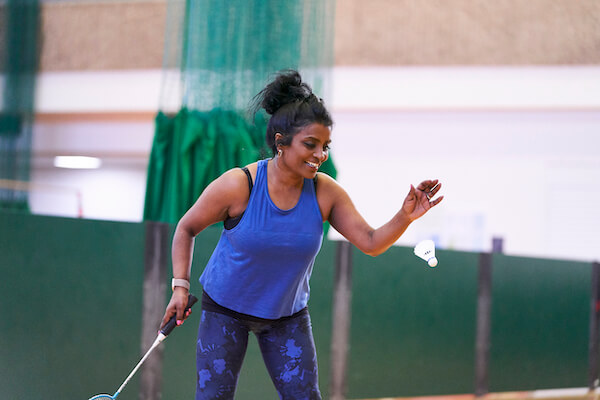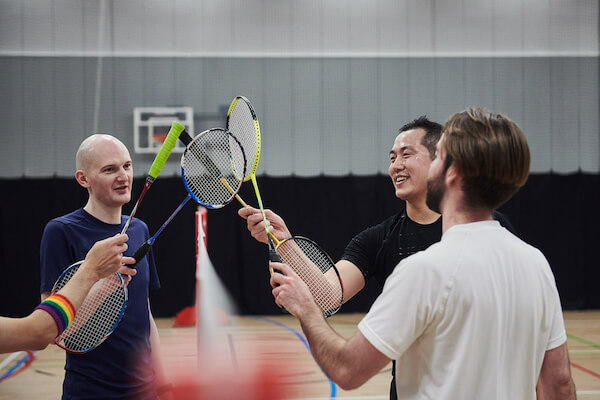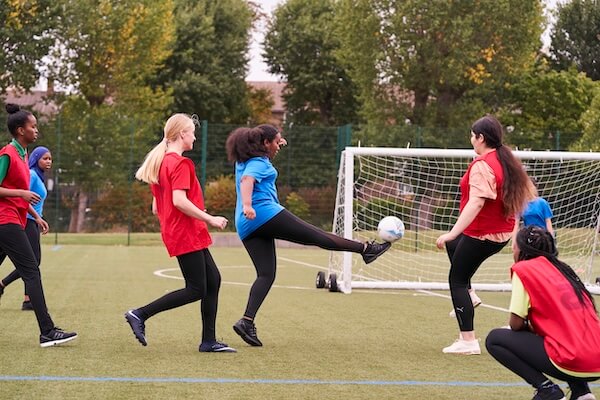
Playing badminton can be a fun and rewarding activity for people of all ages and skill levels. In addition to providing numerous physical and mental health benefits, participating in a social group can enhance the overall enjoyment and experience of playing the sport.
Physical Health Benefits
provides an excellent cardiovascular workout. The fast-paced nature of the game requires players to continuously move around the court, which can help to raise the heart rate and improve cardiovascular endurance. According to a study published in the Journal of Sports Sciences, playing badminton can help to improve oxygen uptake and increase the efficiency of the cardiovascular system. This can help to reduce the risk of heart disease and other cardiovascular conditions, and it can also improve overall physical fitness.In addition to improving cardiovascular health, playing badminton can also help to improve muscle tone and strength. The quick movements and changes of direction required in the game can help to strengthen the muscles in the legs, arms, and core. This can help to improve overall strength and muscle mass, and it can also help to reduce the risk of injuries.
Badminton is also a low-impact sport, making it a good option for those who are looking to exercise but are concerned about the impact on their joints. The quick movements required in badminton can help to improve flexibility, coordination, and balance, which can help to reduce the risk of falls and injuries.
Mental Health Benefits

In addition to the physical benefits, playing badminton can also have positive mental health benefits. Playing badminton can help to reduce stress and improve mood. The social aspect of the game provides an opportunity for players to interact with others and engage in fun, competitive activities, which can help to distract from daily stressors and improve overall well-being. In addition, the physical exertion required in badminton can help to release endorphins, which are chemicals that can improve mood and reduce feelings of stress and anxiety.
Playing badminton can also help to improve concentration and focus. The fast-paced nature of the game requires players to pay attention to the movements of their opponents and the trajectory of the shuttlecock, which can help to improve brain function and cognitive skills. This can be especially beneficial for children, as it can help to improve attention span and academic performance.
In addition to reducing stress and improving concentration, playing badminton can also help to improve self-esteem and confidence. The sense of accomplishment that comes from learning new skills and improving performance can help to boost self-esteem and confidence, which can have a positive impact on overall mental health.
Another mental health benefit of playing badminton is that it can provide a sense of purpose and meaning. Participating in a fun and enjoyable activity can give players a sense of accomplishment and purpose, which can help to improve overall well-being.
Social Benefits

Finding a social group to play badminton with can enhance the overall experience of the sport. Badminton provides an opportunity for players to interact with others and form relationships. Whether you are playing with friends, family, or teammates, badminton is a social activity that can help to improve social connections and build community. This can be especially important for those who are isolated or who have limited opportunities to socialize, as it can provide a sense of belonging and support.
In addition to building social connections, playing badminton can also help to improve communication skills. The fast-paced nature of the game requires players to communicate with their opponents and teammates, which can help to improve verbal and nonverbal communication skills. This can be beneficial in a variety of social situations, both on and off the badminton court.
Another social benefit of playing badminton is that it provides an opportunity for players to develop teamwork and collaboration skills. Whether you are playing doubles or singles, badminton requires players to work together and strategize in order to succeed. This can help to improve teamwork and collaboration skills, which can be beneficial in a variety of social and professional settings.
In addition to building social connections and improving communication and teamwork skills, playing badminton can also help to improve leadership skills. The competitive nature of the game can help players to develop strategies and take charge of their own performance, which can help to build leadership skills and confidence.
Overall, playing badminton can have a variety of social benefits. It can help to build social connections, improve communication and teamwork skills, and develop leadership skills.
Getting Started with badminton
Are you interested in getting started with badminton? Whether you are a beginner or an experienced player looking to pick up the sport again, badminton is a fun and enjoyable way to get exercise and improve your physical and mental health. Here are some tips to help you get started with badminton:
-
Find a place to play: The first step to getting started with badminton is finding a place to play. If you have access to a backyard or a park with a badminton court, that's great. If not, you may be able to find a local community center or gym that has a court available for use.
-
Gather the necessary equipment: In order to play badminton, you will need a few basic pieces of equipment. This includes a racquet, shuttlecocks (also known as birdies), and a net. You can purchase these items at a sporting goods store or online. Some badminton sets come with everything you need to get started, including the rackets, shuttlecocks, and net.
-
Learn the basic rules: Before you start playing, it's important to familiarize yourself with the basic rules of badminton. This includes understanding how to serve, how to score, and the court dimensions. There are also specific rules for doubles and singles play, so be sure to familiarize yourself with these as well.
-
Practice your technique: In order to improve your skills and enjoyment of the game, it's important to practice your technique. This includes learning how to hold the racquet correctly, how to hit the shuttlecock with power and accuracy, and how to move around the court efficiently. You may want to consider taking lessons from a coach or joining a badminton club to help you improve your technique.
-
Find a partner or group: While badminton can be played as a singles sport, it is often more fun to play with a partner or group. You can find a partner by asking friends or family members to play, or you can join a local badminton club or team. Playing with others can help to improve your skills, as well as provide a social aspect to the game.
Overall, getting started with badminton is a fun and rewarding experience. Whether you are a beginner or an experienced player, badminton is a great way to get exercise, improve your physical and mental health, and build social connections. So, gather your equipment, learn the basic rules, and get out on the court – you'll be sure to have a great time.
Conclusion
In conclusion, playing badminton offers numerous physical and mental health benefits, and participating in a social group can enhance the overall enjoyment and experience of the sport. Whether you are a seasoned athlete or just looking for a new way to stay active and have fun, finding a group to play badminton with is a great option that is worth considering.






